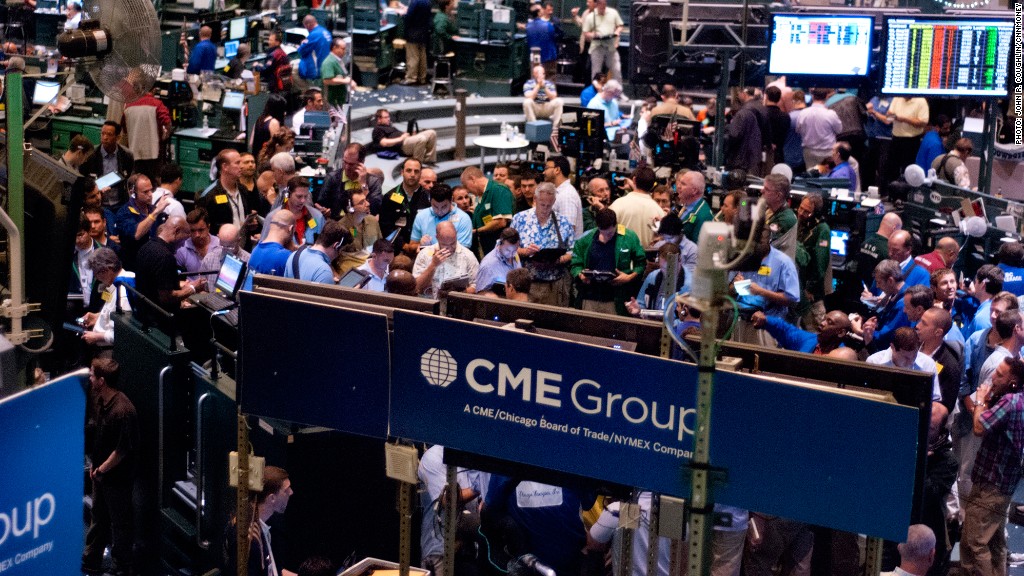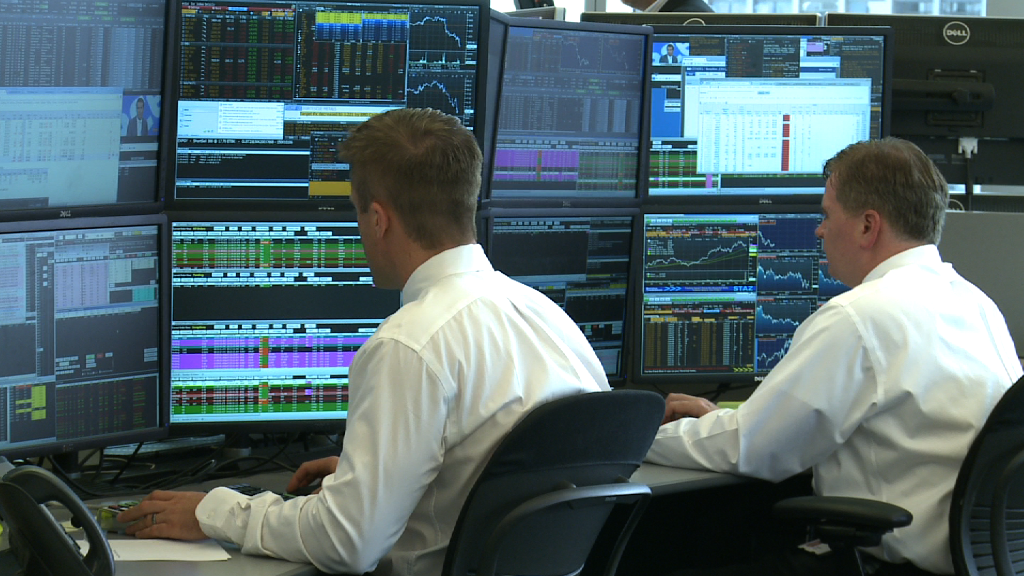
Regulators have fined a U.S. high speed trading firm more than $3 million for manipulating international markets in agricultural commodities and oil.
New Jersey-based Panther Energy Trading and its principal, Michael Coscia, were fined a total of $3.1 million, and also ordered to hand over at least $1.4 million in trading profits, for "spoofing" markets in crude oil, natural gas and other commodities, such as wheat, soybean and corn.
Coscia was accused of using an algorithm to illegally place and quickly cancel orders to buy and sell futures contracts traded on CME Group (CME)exchanges and London's ICE during a two-month period, the regulators said.
Regulators said Coscia and his firm would place small sell orders they wanted to execute, followed by several large buy orders at successively higher prices that they intended to cancel, with the aim of artificially inflating the price at which they could sell by creating an impression of strong demand.
Related: Favorite stocks of high speed traders
Once the sell order was filled by another market participant, Coscia would cancel the buy orders and then reverse the process, racking up a profit from the executions of small orders many times over between August and October 2011.
"While forms of algorithmic trading are of course lawful, using a computer program that is written to spoof the market is illegal and will not be tolerated," said David Meister, enforcement director at the U.S. Commodity Futures Trading Commission.
Panther and Coscia have been banned from trading on any CTFC-registered entity for a year, and from CME markets for six months.

The CFTC said this was the first case pursued under Dodd-Frank rules that explicitly prohibit placing buy or sell orders with the intent to cancel before executing the trade.
The total financial penalty includes a CFTC penalty of $1.4 million, a CME fine of $800,000, along with a fine of about $900,000 imposed by the U.K. Financial Conduct Authority for Coscia's deliberate manipulation of Brent crude, gas oil and West Texas Intermediate futures contracts on the ICE.
Related: High speed trading: Paying for an edge
The FCA fine was cut by 30% because Coscia chose to settle.
The FCA said Coscia made a profit of nearly $280,000 over a 6-week period, mainly at the expense of other high speed traders.
"High frequency trading and the use of algorithms are an important and commonplace part of the markets nowadays but in this case these techniques were deliberately designed to abuse the market," said Tracey McDermott, director of enforcement and financial crime at the FCA.


